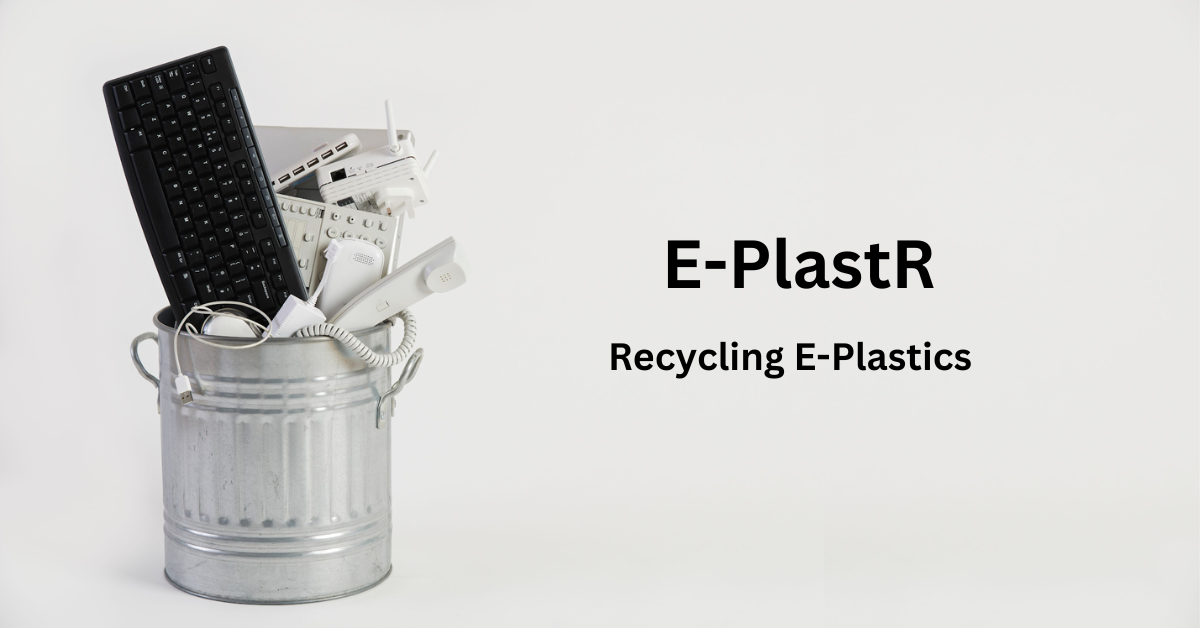According to the International Telecommunication Union, a United Nations agency that specializes in information and communication technologies (ICTs), 53.6 million tonnes of electronic waste has been generated globally as of 2019; only 17% of which was recorded as being collected and properly recycled. In Lebanon, 20,000 tonnes of e-waste are produced annually with a 3% annual growth.
The demand for electronic devices is on the rise and the waste that results from discarding these devices is toxic, not biodegradable, and results in the increased pollution of the environment.
E-PlastR, one of the three winners of the second edition of the DAWERR Ideathon 2022 that is funded by the United States Agency for International Development (USAID), presents an innovative solution to handle the hazardous and non-recyclable plastic found in electronic waste (e-waste).
We sat down for an interview with Gaby Kassab, President & Founder of Ecoserv, to discuss his initiative E-PlastR, the challenges that he and his team faced during the implementation process, and the future plans of his startup.
Q: What are e-plastics and why is it important to recycle them?
A: E-plastics are the plastics that are found in electronic waste. They contain Brominated Fire Retardant (BFR), a highly toxic component that makes them non-recyclable through conventional methods. In addition, e-plastics are made of polymer blends, which are difficult to separate and thus recycle. These challenges have resulted in the accumulation of unsellable electronic plastic waste in the environment without any tangible solutions to address this ecological disaster in sight. Moreover, there is a drastic rising demand for hi-grade plastics in the regional market which is estimated at $2.5B that is currently being filled by imports and which, in turn, affects the flexibility of the product offerings.
Q: How did you come up with the idea of E-PlastR?
A: At Ecoserv, our vision is to create an eco-environment by cleaning the communities of electronic waste. Given the obstacles in recycling e-plastics, we gathered a group of like-minded environmental activists with the needed specializations who are adamant about diverting this highly toxic waste from overcrowded dumpsites by transforming it into a safe, high-grade plastic product that has a positive contribution to the local circular economy.
Q: How does E-PlastR work?
A: With E-PlastR, we created a process that removes toxic chemicals from electronic plastics and extracts the purest form of polymers from these complex plastic blends. By doing so, we can restore the value of important raw materials which would otherwise be worthless, impossible to recycle, and toxic to the environment. Once processed, the extracted plastics are fed back into the industrial sector in a circular manner; thus, providing a viable alternative to the high-grade polymers, which is an imported raw material used in the 3D printing filament production that the MENA region and Lebanon are drastically reliant on. This is why, as a first step, we are focusing on the production of 3D printing filaments out of our recycled e-plastics which will help in positioning Lebanon as one of the leading countries that export raw polymer to the MENA region.
Q: What are some of the challenges that you faced during the implementation phase of your project and how did you overcome them?
A: From a technical point of view, the main challenge that we faced was finding the right combination of unique green solvents to be able to extract clean, ‘virgin’ quality polymers, without releasing any harmful/toxic chemicals into the environment. We were able to overcome this challenge by implementing extensive trials and testing that were based on sound scientific fundamentals while using different methods and processes. Now, we can confidently say that we have achieved the right and regionally unique green process that allows the generation of high-grade virgin polymers that are widely sought after in the region, with minimal environmental impact.
From an operational perspective, we put together a highly professional and experienced team from the on-set who worked extensively during the planning phase before we started working on the process. We basically made sure to cover all the operational bases; therefore, the only obstacles we found ourselves facing were administrative and logistical issues that are mainly due to the current situation in Lebanon concerning banks and so on that will affect reaching our overall objectives and performance.
It’s important to note that we went into this venture with full knowledge about what we were getting ourselves into, and accordingly developed a set of scenarios from the start to help us prevent negative pressures and turbulence from influencing the general direction of the venture.
Q: What are your long-term goals for E-PlastR?
A: We want to be one of the major players in the reclaimed e-plastics ecosystem due to our unique green process. We also aim to generate enough fresh funds from our export business to further develop the venture by specializing in complex reclaimed polymer mixtures, all the while using our already-in-place Ecoserv network to champion the cause of total diversion of toxic plastics from landfills and open uncontrolled dumpsites.
Q: What role did your participation in the DAWERR Ideathon 2022 play in your startup?
A: When we applied to the DAWERR Ideathon, we were still in the ideation stage of our entrepreneurial journey. With the guidance of the participating experts and through the rich ecosystem at Berytech, we were able to propel our unique chemical process into a fully-fledged industrial business model. With the additional boost provided by the grants we secured through our participation, we were able to equip our lab with a state-of-the-art filament extruder system that is available in Lebanon to start our industrial scale-up.
Q: What advice would you give to entrepreneurs who are just starting their journey in the solid waste management sector?
A: It is crucial that they don’t compromise on environmental sustainability and always make sure that their processes are unique, stable, and positively contribute to the local circular economy.










